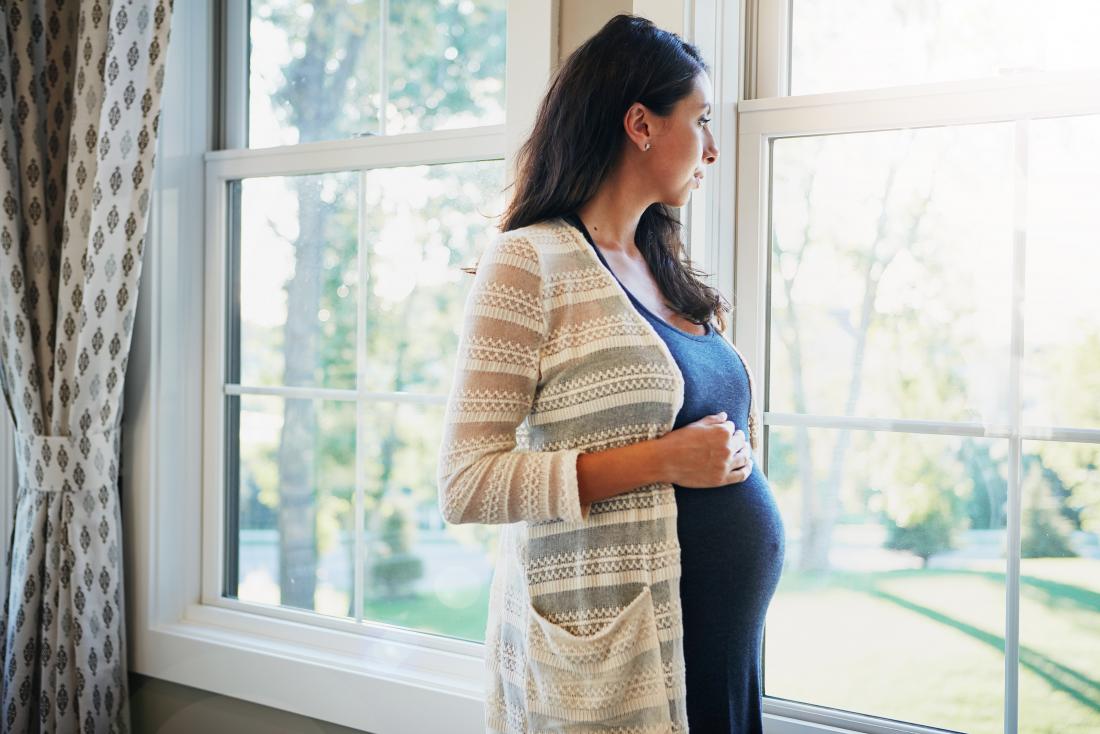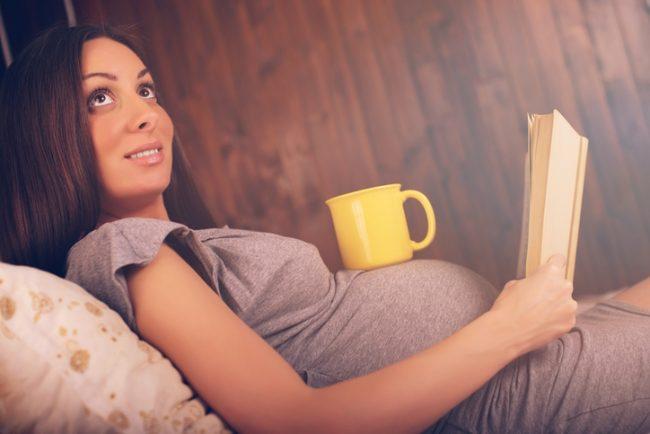
Can You Get Your Period while Pregnant?
Berita Baru, Kolom – The question is simple, can you get your period while pregnant? The quick response is no. Contrary to popular belief, it is impossible to experience a period when pregnant.
First
Early in pregnancy, you might instead experience “spotting,” which is typically light pink or dark brown in hue.
As a general guideline, if you’re bleeding enough to fill a pad or tampon, you’re probably not pregnant. Seek medical attention if you’ve had a positive pregnancy test and are bleeding a lot!
Second
Secondly, something you need to know is the difference between period and pregnancy.
Approximately once a month, you get your period instead of an egg fertilized. The ovary releases eggs once per month. The egg exits the uterus and sheds through the vagina if it is not fertilized.
During a “typical” period, bleeding frequently begins mildly before becoming thicker and darker crimson. At the end of the cycle, both its hue and amount lighten.
Pregnancy prevents you from having periods, which is one of the key distinctions between menstruation and pregnancy. But sometimes it’s not so evident.
Some claim to have had periods throughout pregnancy. Social media, blogs, and even television programs like “I Didn’t Know I Was Pregnant” are fueling some of the queries into the “periods while pregnant” hoax.
Although bleeding is a warning indicator, it need not be a terrible thing. Many women who have spotting in the first trimester go on to deliver healthy infants. If you bleed when pregnant, it’s likely due to something other than your monthly period.
After all, you only get periods when you are not pregnant. Find out the various forms of bleeding that can occur during pregnancy and when you should contact your OB-GYN. Can you get your period while pregnant?
Third: reasons why women bleed during the first trimester
Between 15 and 25% of women develop stretch marks in the first trimester. Several of the causes include: implantation bleeding, changes in the cervix, infection, molar pregnancy (abnormal mass fertilizes instead of a fetus), ectopic pregnancy (a pregnancy outside of the uterus), early signs of a miscarriage.
Fourth: surgical bleeding
Early in the pregnancy, this takes place. You most certainly haven’t taken a pregnancy test at this point. When the fertilized egg implants into the uterus, which typically happens around the time you would anticipate your period, this sort of bleeding begins.
Although implant bleeding is typically minimal or only spotting, it can occasionally be mistaken for a menstruation.
You could also experience spotting due to cervical changes soon after giving birth. Unless there is an infection, this usually isn’t a problem.
Fifth: again, can you get your period while pregnant
Other forms of early bleeding that may be a sign of a medical emergency include: infections, ectopic pregnancy, molar pregnancy, miscarriage, and infections.
Along with this, you may also experience: excruciating cramps or abdominal pain, back pain, dizziness or losing consciousness, weariness, shoulder ache, fever, alterations in vaginal discharge, and uncontrollable dizziness and nausea.
In contrast to spotting, the bleeding is also much thicker. It resembles a period more than usual.
Sixth: factors that lead to bleeding in the second and third trimesters
Medical treatment is frequently needed if bleeding continues through the first trimester. Call your doctor right away to schedule an emergency appointment whether your second or third trimester bleeding is light or severe, with or without any additional symptoms.
Typical reasons for bleeding later in pregnancy include: previa, placental abruption, uterine rupture (rarely), term or preterm labor, cervical dilation, miscarriage, placenta, and vasa previa (rare). Can you get your period while pregnant?
Seventh: pregnancy labor
Any birth that occurs prior to 37 weeks is referred to here. Some people suffer period-like symptoms and a lot of mucus discharge before to premature labor.
Preterm labor also results in contractions, though you could also experience cramping. Backaches, changes in discharge, and a feeling of pressure in the vagina can also be signs of preterm labor.
Eighth: previa placenta
When the placenta is deposited low in the uterus and closely next to or covering the cervix, this occurs. There are several types of bleeding, but no other symptoms. Labor and delivery may be hampered by placenta previa.
Ninth: uterine rupture and placental abruption
The last few months of pregnancy are when this happens most frequently. When the placenta separates from the uterus, there is typically significant bleeding and perhaps excruciating cramping.
Placental abruption risk may be increased by certain medical disorders, such as high blood pressure. Can you get your period while pregnant?
A uterine rupture occurs when the uterus’s muscle separates or is torn. This can result in unchecked bleeding.
People who have previously had a cesarean delivery tend to experience it the most frequently. This kind of rip, however uncommon, develops along the uterus’s ancient scar lines.
In the later stages of pregnancy, many problems result in bleeding and other symptoms resembling a period. However, these aren’t truly menstruation.
Tenth: what is the earliest test result that confirms pregnancy?
A hormone called human chorionic gonadotropin (hCG) is detected in urine by at-home pregnancy tests.
Early in the pregnancy, urine testing might not be as precise since urine often contains less hormones that can be measured than blood.
The type of test or brand, mistake in reading the findings, length of the female cycle, and interference from another diagnosis or treatment are just a few examples of the many variables that can affect the accuracy of the home urine pregnancy test.
When a menstrual cycle is missing is the ideal time to perform a home pregnancy test.
To sum up: can you get your period while pregnant?
Your period cannot come while you are pregnant. In the first trimester, though, you can encounter sensations comparable to those of a period. These include mild, transient vaginal bleeding, minor cramps, exhaustion, irritability, and lower back pain.
The distinction is that your body is using these symptoms as part of its natural pregnancy preparation. Seek immediate medical attention if any of the aforementioned symptoms are severe or persistent, you are in your second or third trimester of pregnancy, or both apply.
It might be challenging to determine whether bleeding is a sign of a medical emergency or not. As a general guideline, call your doctor as soon as you notice bleeding throughout any stage of pregnancy.


 Rctiplus.com
Rctiplus.com pewartanusantara.com
pewartanusantara.com Jobnas.com
Jobnas.com Serikatnews.com
Serikatnews.com Serdadu.id
Serdadu.id Beritautama.co
Beritautama.co kalbarsatu.id
kalbarsatu.id surau.co
surau.co






